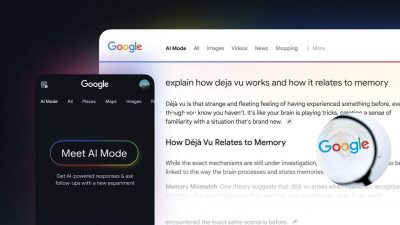- News
- National
- WorldExplore stories, events, and insights from across the globe. Stay updated on international affairs, cultural highlights, and impactful moments that connect us all in the world we share.
- COVIDAll the COVID updates you actually need — in one place. From rising cases and health alerts to vaccine news and government responses in Nepal, we track how the pandemic is evolving right now.
- OpinionTransform your living spaces with inspiration, tips, and trends in interior design. From minimalist decor to bold statements, find ideas for every style and budget.
- MausamWhat’s the vibe outside in Nepal? We got you. From surprise rain in Pokhara to record heat in the Terai, Mausam keeps you in the loop with real-time updates, sky moods, and climate chaos. Daily forecasts, weather memes, wild climate shifts—basically, everything the sky’s throwing at Nepal.
- Entertainment
- Tech X Innovation
- StartupsNew tech companies – Coverage on emerging businesses and cool new ideas. Funding rounds – Reports on who’s investing in which startup. Incubators/accelerators – Stories from Y Combinator, Techstars, and others. Founder interviews – Insightful chats with the people behind the tech. Focuses on early-stage innovation, entrepreneurship, and the business side of tech creation.
- Green TechSustainable innovations – Greener solutions in daily tech. Electric vehicles – From Tesla to two-wheelers. Solar & clean energy tech – Advances in renewable energy. Highlights environmentally friendly technology shaping the future.
- Social MediaNews on Facebook, Instagram, X (Twitter), TikTok, Snapchat, Threads, etc. – Platform-specific updates and controversies. Influencer trends – Who’s going viral, and why. Platform updates & features – Algorithm tweaks, UI changes, etc. Social media marketing tips – Strategies for brands and creators. A must-have category for Gen Z audiences and digital culture followers.
- Tech BusinessBig Tech (Apple, Google, Meta, etc.) – Corporate strategies and leadership. Mergers & acquisitions – Who’s buying whom. Market trends – Stocks, earnings, and business moves. Tech stocks & IPOs – Valuation and investment angles. Takes a business lens on tech developments and industry movements.
- AI & InnovationChatGPT, Google Gemini, etc. – Deep dives into trending AI tools. AI tools for creators – Helping writers, artists, and editors. Robotics & automation – Cool robots and smart factories. Research & futuristic tech – Sci-fi-level innovation becoming reality. Where bleeding-edge meets practical utility — future tech made now.
- Apps & SoftwareApp launches and reviews – First looks, ratings, and real-world testing. Productivity tools – Apps that boost work and personal efficiency. Social media tools – Analytics, schedulers, and growth platforms. Updates to existing platforms – Major feature changes or UI overhauls. Covers the ever-growing world of applications that power our daily digital lives.
- Gadgets & DevicesSmartphones, laptops, wearables – Launches, leaks, and hands-on reviews. Reviews & comparisons – Which device is best, and why? Launch events (Apple, Samsung, etc.) – Coverage of major tech product events. Focuses on the hardware and tools that define the modern tech lifestyle.
- Better Living
- HealthStay informed about health and wellness with expert advice, fitness tips, and the latest medical breakthroughs. Your guide to a healthier and happier life.
- LifestyleExplore stories and advice on living your best life. From personal growth to entertainment, dive into the latest in lifestyle trends and inspiration.
- FoodySavor the world of culinary delights with news, recipes, and food trends. From gourmet dishes to comfort food, indulge in the flavors that bring people together.
- Sports
- Gaming
- TransfersWho’s in, who’s out, and who’s about to shake up the football world? 🚨 From wild rumors to official deals, we track every move that matters. Whether it’s a superstar switch or a lowkey wonderkid transfer, Kirib’s got the tea. ✅ Confirmed Transfers – Official club announcements with fee details and contract length. 🔁 Rumors & Talks – Trusted reports on who’s linked with who, and how real the deal is. 🌍 Global Coverage – Premier League, La Liga, Serie A, Bundesliga, and beyond. 🧠 Breakdowns – Why the move matters, how the player fits, and what fans are saying. 🎯 Wonderkid Watch – The next-gen ballers on the move and why you should care. ⏱️ Deadline Day Drama – Live updates, chaos, and last-minute deals you don’t want to miss. 💸 Transfer Fees & Wages – The numbers behind the moves—no fluff, just facts. 🎥 Player Highlights – Quick clips and stats to see what the hype’s about.
- CricketFrom local legends to global icons — this is your home for everything cricket. Whether it’s Nepal chasing history or world giants battling in packed stadiums, we bring fast, focused, and fresh coverage. Stay tuned for: Nepal men’s and women’s national team updates Live scores, match previews & sharp predictions Nepal Premier League (NPL) & domestic tournaments ICC events, World Cups, and qualifiers Player spotlights, rising stars, and milestones Exclusive news, quick stats, and squad insights Catch every boundary, wicket, and headline — only on Kirib.
- Football
- Other Sports
- Premier LeagueThe most-watched league on the planet — now with a Kirib spin 🌍⚡From Old Trafford to Anfield, we bring the Premier League closer to Nepal What you’ll get here: • 🗓️ Weekly fixtures & match schedules (Nepal Time)• 🧢 Previews, predictions & bold takes• 📊 Results, standings & what they mean• 🚨 Transfer buzz, injury updates & drama• 🔥 Fan culture, memes & top moments• 📺 Storylines that matter — on and off the pitch
- World Cup 2026Football’s biggest stage, covered in Kirib style. Fast previews, bold predictions, squad news, stats that slap, and viral moments — all in Nepal Time. What’s Inside: Fixtures & results Match previews & hot takes Squad updates & injuries Meme-worthy moments Knockout drama Nepali POV on the global game
- Champions LeagueEurope’s biggest stage. Global hype. Local timing.We cover the UEFA Champions League with speed, style, and a Nepali lens What you’ll find here: • 🗓️ Fixtures & full schedules (📍Nepal Time)• ⚔️ Match previews & key battles• 📊 Results & post-match breakdowns• 🔥 Player watch & breakout stars• 🧠 Tactical insights, memes & culture takes• 🏆 Road to the Final — every twist, every turn
- Nepal Premier LeagueAll the latest news, match previews, results, player updates, and behind-the-scenes coverage from the Nepal Premier League (NPL), Nepal’s top domestic T20 cricket tournament. Lineups, auction details, schedules, and standout performances throughout the season.
- Indian Premier LeagueCricket’s wildest ride, delivered with flair and filters 🎯🔥 From sixes to stumps, the IPL is more than a league — it’s a festival, and we’re covering every moment. What you’ll find here: • 🗓️ Match schedules & live updates (Nepal Time) • 🧢 Team news, playing XIs & preview breakdowns • 📊 Results, points table & playoff race • 💸 Transfer auctions, trades & behind-the-scenes buzz • 🔥 Player highlights, clutch finishes & viral moments • 🎭 Meme drops, fan reactions & post-match chaos The IPL is fast, loud, and full of energy — just like Kirib.
- Standings
- News
- National
- WorldExplore stories, events, and insights from across the globe. Stay updated on international affairs, cultural highlights, and impactful moments that connect us all in the world we share.
- COVIDAll the COVID updates you actually need — in one place. From rising cases and health alerts to vaccine news and government responses in Nepal, we track how the pandemic is evolving right now.
- OpinionTransform your living spaces with inspiration, tips, and trends in interior design. From minimalist decor to bold statements, find ideas for every style and budget.
- MausamWhat’s the vibe outside in Nepal? We got you. From surprise rain in Pokhara to record heat in the Terai, Mausam keeps you in the loop with real-time updates, sky moods, and climate chaos. Daily forecasts, weather memes, wild climate shifts—basically, everything the sky’s throwing at Nepal.
- Entertainment
- Tech X Innovation
- StartupsNew tech companies – Coverage on emerging businesses and cool new ideas. Funding rounds – Reports on who’s investing in which startup. Incubators/accelerators – Stories from Y Combinator, Techstars, and others. Founder interviews – Insightful chats with the people behind the tech. Focuses on early-stage innovation, entrepreneurship, and the business side of tech creation.
- Green TechSustainable innovations – Greener solutions in daily tech. Electric vehicles – From Tesla to two-wheelers. Solar & clean energy tech – Advances in renewable energy. Highlights environmentally friendly technology shaping the future.
- Social MediaNews on Facebook, Instagram, X (Twitter), TikTok, Snapchat, Threads, etc. – Platform-specific updates and controversies. Influencer trends – Who’s going viral, and why. Platform updates & features – Algorithm tweaks, UI changes, etc. Social media marketing tips – Strategies for brands and creators. A must-have category for Gen Z audiences and digital culture followers.
- Tech BusinessBig Tech (Apple, Google, Meta, etc.) – Corporate strategies and leadership. Mergers & acquisitions – Who’s buying whom. Market trends – Stocks, earnings, and business moves. Tech stocks & IPOs – Valuation and investment angles. Takes a business lens on tech developments and industry movements.
- AI & InnovationChatGPT, Google Gemini, etc. – Deep dives into trending AI tools. AI tools for creators – Helping writers, artists, and editors. Robotics & automation – Cool robots and smart factories. Research & futuristic tech – Sci-fi-level innovation becoming reality. Where bleeding-edge meets practical utility — future tech made now.
- Apps & SoftwareApp launches and reviews – First looks, ratings, and real-world testing. Productivity tools – Apps that boost work and personal efficiency. Social media tools – Analytics, schedulers, and growth platforms. Updates to existing platforms – Major feature changes or UI overhauls. Covers the ever-growing world of applications that power our daily digital lives.
- Gadgets & DevicesSmartphones, laptops, wearables – Launches, leaks, and hands-on reviews. Reviews & comparisons – Which device is best, and why? Launch events (Apple, Samsung, etc.) – Coverage of major tech product events. Focuses on the hardware and tools that define the modern tech lifestyle.
- Better Living
- HealthStay informed about health and wellness with expert advice, fitness tips, and the latest medical breakthroughs. Your guide to a healthier and happier life.
- LifestyleExplore stories and advice on living your best life. From personal growth to entertainment, dive into the latest in lifestyle trends and inspiration.
- FoodySavor the world of culinary delights with news, recipes, and food trends. From gourmet dishes to comfort food, indulge in the flavors that bring people together.
- Sports
- Gaming
- TransfersWho’s in, who’s out, and who’s about to shake up the football world? 🚨 From wild rumors to official deals, we track every move that matters. Whether it’s a superstar switch or a lowkey wonderkid transfer, Kirib’s got the tea. ✅ Confirmed Transfers – Official club announcements with fee details and contract length. 🔁 Rumors & Talks – Trusted reports on who’s linked with who, and how real the deal is. 🌍 Global Coverage – Premier League, La Liga, Serie A, Bundesliga, and beyond. 🧠 Breakdowns – Why the move matters, how the player fits, and what fans are saying. 🎯 Wonderkid Watch – The next-gen ballers on the move and why you should care. ⏱️ Deadline Day Drama – Live updates, chaos, and last-minute deals you don’t want to miss. 💸 Transfer Fees & Wages – The numbers behind the moves—no fluff, just facts. 🎥 Player Highlights – Quick clips and stats to see what the hype’s about.
- CricketFrom local legends to global icons — this is your home for everything cricket. Whether it’s Nepal chasing history or world giants battling in packed stadiums, we bring fast, focused, and fresh coverage. Stay tuned for: Nepal men’s and women’s national team updates Live scores, match previews & sharp predictions Nepal Premier League (NPL) & domestic tournaments ICC events, World Cups, and qualifiers Player spotlights, rising stars, and milestones Exclusive news, quick stats, and squad insights Catch every boundary, wicket, and headline — only on Kirib.
- Football
- Other Sports
- Premier LeagueThe most-watched league on the planet — now with a Kirib spin 🌍⚡From Old Trafford to Anfield, we bring the Premier League closer to Nepal What you’ll get here: • 🗓️ Weekly fixtures & match schedules (Nepal Time)• 🧢 Previews, predictions & bold takes• 📊 Results, standings & what they mean• 🚨 Transfer buzz, injury updates & drama• 🔥 Fan culture, memes & top moments• 📺 Storylines that matter — on and off the pitch
- World Cup 2026Football’s biggest stage, covered in Kirib style. Fast previews, bold predictions, squad news, stats that slap, and viral moments — all in Nepal Time. What’s Inside: Fixtures & results Match previews & hot takes Squad updates & injuries Meme-worthy moments Knockout drama Nepali POV on the global game
- Champions LeagueEurope’s biggest stage. Global hype. Local timing.We cover the UEFA Champions League with speed, style, and a Nepali lens What you’ll find here: • 🗓️ Fixtures & full schedules (📍Nepal Time)• ⚔️ Match previews & key battles• 📊 Results & post-match breakdowns• 🔥 Player watch & breakout stars• 🧠 Tactical insights, memes & culture takes• 🏆 Road to the Final — every twist, every turn
- Nepal Premier LeagueAll the latest news, match previews, results, player updates, and behind-the-scenes coverage from the Nepal Premier League (NPL), Nepal’s top domestic T20 cricket tournament. Lineups, auction details, schedules, and standout performances throughout the season.
- Indian Premier LeagueCricket’s wildest ride, delivered with flair and filters 🎯🔥 From sixes to stumps, the IPL is more than a league — it’s a festival, and we’re covering every moment. What you’ll find here: • 🗓️ Match schedules & live updates (Nepal Time) • 🧢 Team news, playing XIs & preview breakdowns • 📊 Results, points table & playoff race • 💸 Transfer auctions, trades & behind-the-scenes buzz • 🔥 Player highlights, clutch finishes & viral moments • 🎭 Meme drops, fan reactions & post-match chaos The IPL is fast, loud, and full of energy — just like Kirib.
- Standings
Now Reading: Use of ChatGPT drops in businesses for the first time since 2022
- 01
Use of ChatGPT drops in businesses for the first time since 2022
- News//
- National//
- World//Explore stories, events, and insights from across the globe. Stay updated on international affairs, cultural highlights, and impactful moments that connect us all in the world we share.
- COVID//All the COVID updates you actually need — in one place. From rising cases and health alerts to vaccine news and government responses in Nepal, we track how the pandemic is evolving right now.
- Opinion//Transform your living spaces with inspiration, tips, and trends in interior design. From minimalist decor to bold statements, find ideas for every style and budget.
- Mausam//What’s the vibe outside in Nepal? We got you. From surprise rain in Pokhara to record heat in the Terai, Mausam keeps you in the loop with real-time updates, sky moods, and climate chaos. Daily forecasts, weather memes, wild climate shifts—basically, everything the sky’s throwing at Nepal.
- Entertainment//
- Tech X Innovation//
- Startups//New tech companies – Coverage on emerging businesses and cool new ideas. Funding rounds – Reports on who’s investing in which startup. Incubators/accelerators – Stories from Y Combinator, Techstars, and others. Founder interviews – Insightful chats with the people behind the tech. Focuses on early-stage innovation, entrepreneurship, and the business side of tech creation.
- Green Tech//Sustainable innovations – Greener solutions in daily tech. Electric vehicles – From Tesla to two-wheelers. Solar & clean energy tech – Advances in renewable energy. Highlights environmentally friendly technology shaping the future.
- Social Media//News on Facebook, Instagram, X (Twitter), TikTok, Snapchat, Threads, etc. – Platform-specific updates and controversies. Influencer trends – Who’s going viral, and why. Platform updates & features – Algorithm tweaks, UI changes, etc. Social media marketing tips – Strategies for brands and creators. A must-have category for Gen Z audiences and digital culture followers.
- Tech Business//Big Tech (Apple, Google, Meta, etc.) – Corporate strategies and leadership. Mergers & acquisitions – Who’s buying whom. Market trends – Stocks, earnings, and business moves. Tech stocks & IPOs – Valuation and investment angles. Takes a business lens on tech developments and industry movements.
- AI & Innovation//ChatGPT, Google Gemini, etc. – Deep dives into trending AI tools. AI tools for creators – Helping writers, artists, and editors. Robotics & automation – Cool robots and smart factories. Research & futuristic tech – Sci-fi-level innovation becoming reality. Where bleeding-edge meets practical utility — future tech made now.
- Apps & Software//App launches and reviews – First looks, ratings, and real-world testing. Productivity tools – Apps that boost work and personal efficiency. Social media tools – Analytics, schedulers, and growth platforms. Updates to existing platforms – Major feature changes or UI overhauls. Covers the ever-growing world of applications that power our daily digital lives.
- Gadgets & Devices//Smartphones, laptops, wearables – Launches, leaks, and hands-on reviews. Reviews & comparisons – Which device is best, and why? Launch events (Apple, Samsung, etc.) – Coverage of major tech product events. Focuses on the hardware and tools that define the modern tech lifestyle.
- Better Living//
- Health//Stay informed about health and wellness with expert advice, fitness tips, and the latest medical breakthroughs. Your guide to a healthier and happier life.
- Lifestyle//Explore stories and advice on living your best life. From personal growth to entertainment, dive into the latest in lifestyle trends and inspiration.
- Foody//Savor the world of culinary delights with news, recipes, and food trends. From gourmet dishes to comfort food, indulge in the flavors that bring people together.
- Sports//
- Gaming//
- Transfers//Who’s in, who’s out, and who’s about to shake up the football world? 🚨 From wild rumors to official deals, we track every move that matters. Whether it’s a superstar switch or a lowkey wonderkid transfer, Kirib’s got the tea. ✅ Confirmed Transfers – Official club announcements with fee details and contract length. 🔁 Rumors & Talks – Trusted reports on who’s linked with who, and how real the deal is. 🌍 Global Coverage – Premier League, La Liga, Serie A, Bundesliga, and beyond. 🧠 Breakdowns – Why the move matters, how the player fits, and what fans are saying. 🎯 Wonderkid Watch – The next-gen ballers on the move and why you should care. ⏱️ Deadline Day Drama – Live updates, chaos, and last-minute deals you don’t want to miss. 💸 Transfer Fees & Wages – The numbers behind the moves—no fluff, just facts. 🎥 Player Highlights – Quick clips and stats to see what the hype’s about.
- Cricket//From local legends to global icons — this is your home for everything cricket. Whether it’s Nepal chasing history or world giants battling in packed stadiums, we bring fast, focused, and fresh coverage. Stay tuned for: Nepal men’s and women’s national team updates Live scores, match previews & sharp predictions Nepal Premier League (NPL) & domestic tournaments ICC events, World Cups, and qualifiers Player spotlights, rising stars, and milestones Exclusive news, quick stats, and squad insights Catch every boundary, wicket, and headline — only on Kirib.
- Football//
- Other Sports//
- Premier League//The most-watched league on the planet — now with a Kirib spin 🌍⚡From Old Trafford to Anfield, we bring the Premier League closer to Nepal What you’ll get here: • 🗓️ Weekly fixtures & match schedules (Nepal Time)• 🧢 Previews, predictions & bold takes• 📊 Results, standings & what they mean• 🚨 Transfer buzz, injury updates & drama• 🔥 Fan culture, memes & top moments• 📺 Storylines that matter — on and off the pitch
- World Cup 2026//Football’s biggest stage, covered in Kirib style. Fast previews, bold predictions, squad news, stats that slap, and viral moments — all in Nepal Time. What’s Inside: Fixtures & results Match previews & hot takes Squad updates & injuries Meme-worthy moments Knockout drama Nepali POV on the global game
- Champions League//Europe’s biggest stage. Global hype. Local timing.We cover the UEFA Champions League with speed, style, and a Nepali lens What you’ll find here: • 🗓️ Fixtures & full schedules (📍Nepal Time)• ⚔️ Match previews & key battles• 📊 Results & post-match breakdowns• 🔥 Player watch & breakout stars• 🧠 Tactical insights, memes & culture takes• 🏆 Road to the Final — every twist, every turn
- Nepal Premier League//All the latest news, match previews, results, player updates, and behind-the-scenes coverage from the Nepal Premier League (NPL), Nepal’s top domestic T20 cricket tournament. Lineups, auction details, schedules, and standout performances throughout the season.
- Indian Premier League//Cricket’s wildest ride, delivered with flair and filters 🎯🔥 From sixes to stumps, the IPL is more than a league — it’s a festival, and we’re covering every moment. What you’ll find here: • 🗓️ Match schedules & live updates (Nepal Time) • 🧢 Team news, playing XIs & preview breakdowns • 📊 Results, points table & playoff race • 💸 Transfer auctions, trades & behind-the-scenes buzz • 🔥 Player highlights, clutch finishes & viral moments • 🎭 Meme drops, fan reactions & post-match chaos The IPL is fast, loud, and full of energy — just like Kirib.
- Standings//
Use of ChatGPT drops in businesses for the first time since 2022
 AashutoshAI & Innovation1 month ago291 Views
AashutoshAI & Innovation1 month ago291 Views

A recent report by cybersecurity firm Netskope reveals that for the first time since its launch in 2022, the use of ChatGPT in business environments has declined. According to the data, 78% of organizations used ChatGPT recently, a slight drop from 80% recorded earlier in 2025. This marks a notable shift in the artificial intelligence (AI) landscape, reflecting changing business preferences and rising concerns over data security.
Despite the small decrease, ChatGPT remains the most widely adopted generative AI tool among companies worldwide, with 55% of firms actively using it. However, competitors such as Google’s Gemini and Microsoft’s Copilot are gaining traction, especially as they are integrated into popular workplace tools like Microsoft Office 365 and GitHub. These integrations offer seamless AI-powered assistance, prompting many organizations to explore alternatives to ChatGPT.
One of the main reasons for the decline in ChatGPT use is growing unease about data privacy and security. Businesses have become cautious due to the increasing amount of sensitive information shared with AI tools. The report highlights a dramatic rise in data volumes sent to AI chatbots—from 250 megabytes per month in 2024 to an average of 7.7 gigabytes per month in 2025. This surge increases the risk of data leaks and unauthorized exposure of confidential company information.
In response, many companies have adopted stricter data protection measures. These include deploying data loss prevention (DLP) tools, enforcing real-time user coaching, and developing internal AI systems that allow more control over sensitive data. Some businesses are also investing in custom AI models tailored to their specific security needs, reducing reliance on public AI platforms.
The evolving AI adoption trend illustrates a broader shift in how businesses approach emerging technologies. While generative AI tools like ChatGPT have revolutionized workplace productivity, organizations are increasingly weighing the benefits against potential risks. This balancing act is influencing investment decisions and strategic planning in the AI sector.
For ChatGPT’s developer, OpenAI, this change presents both challenges and opportunities. Maintaining user trust and expanding market share will require introducing enhanced security features and transparent data handling practices. As the AI market grows more competitive, companies will need to innovate continually to meet the demands of enterprise users.
Meanwhile, regulatory pressures around data privacy and AI ethics are also shaping industry dynamics. Governments worldwide are implementing stricter rules to protect consumers and businesses, compelling AI providers to comply with new standards.
Overall, the AI business ecosystem is entering a phase of maturation. Companies are becoming more sophisticated in their use of AI, demanding solutions that not only improve efficiency but also safeguard their data assets. As this landscape develops, the competition among AI tools is expected to intensify, with user trust and security playing a pivotal role in determining long-term success.















